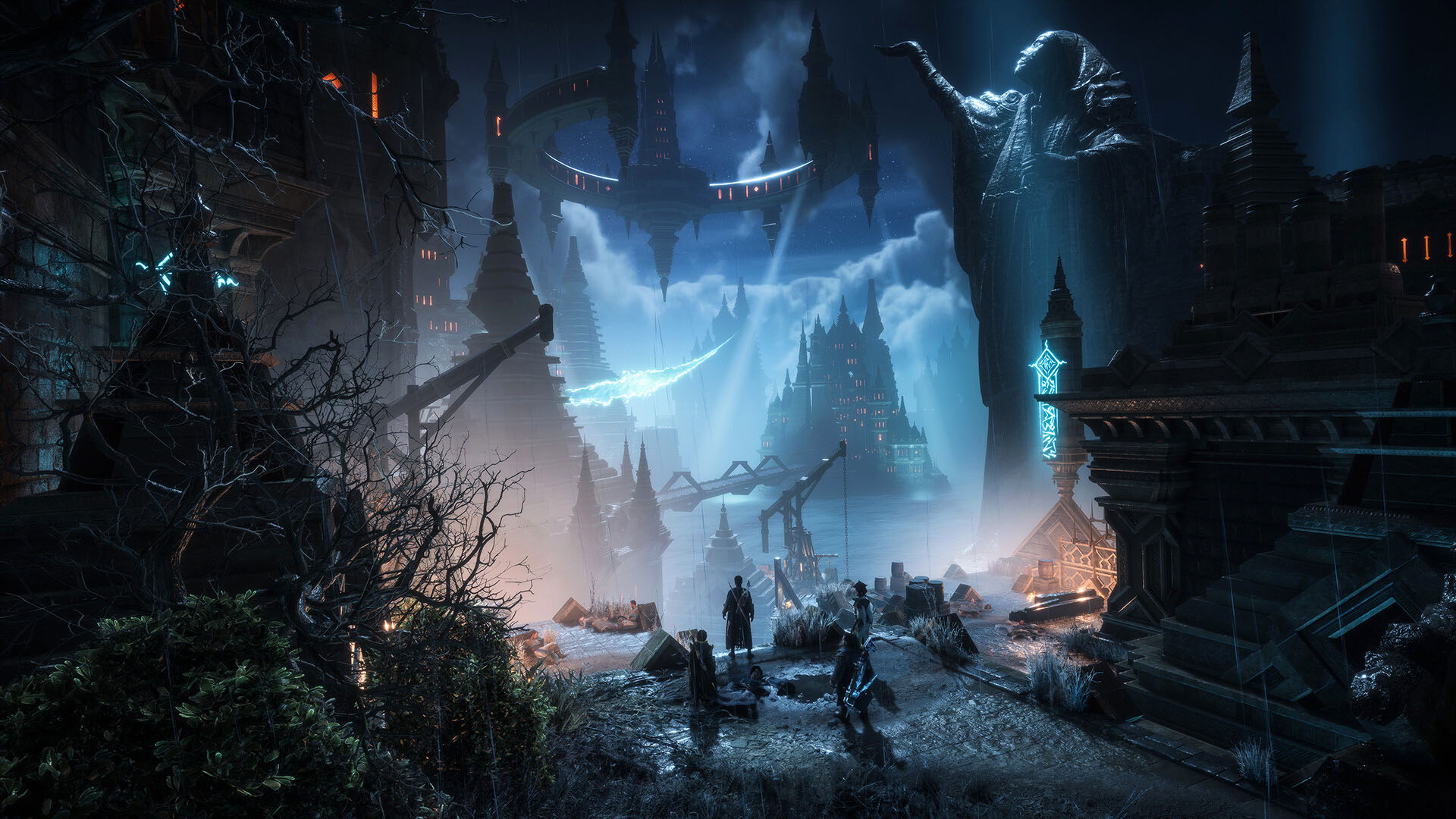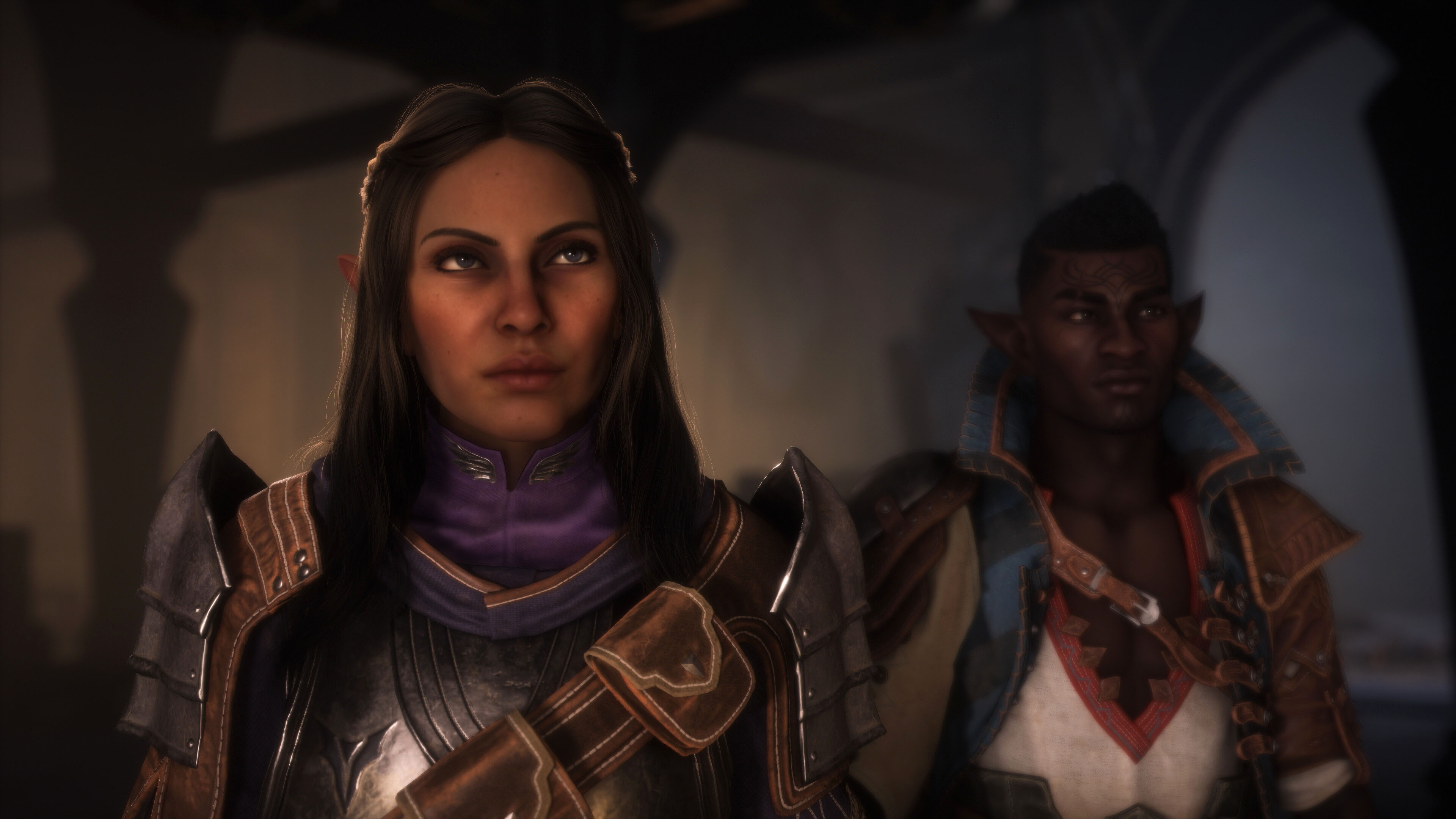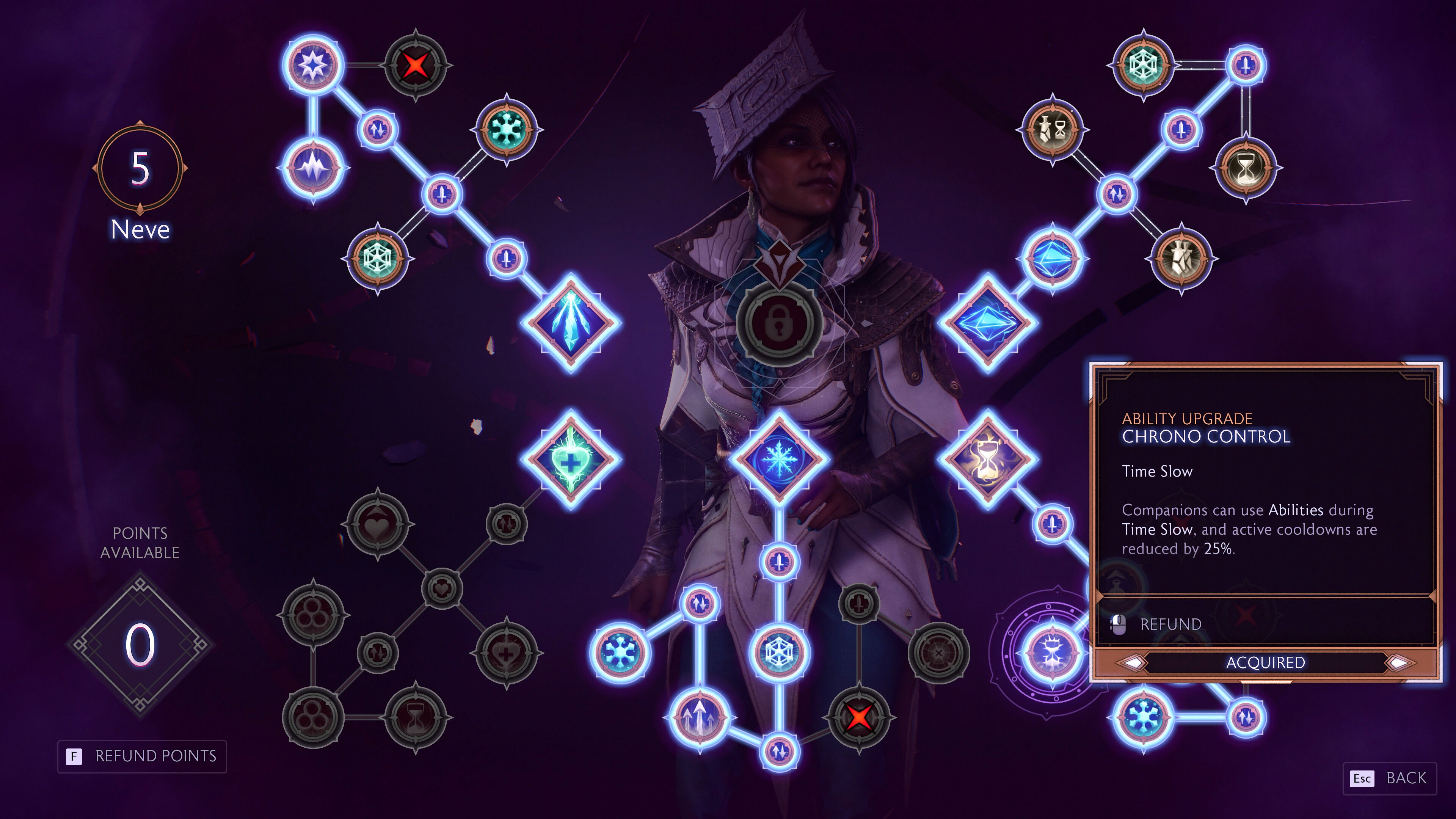
Dragon Age The Veilguard review: after a month in Thedas, we’ve got some thoughts
BioWare’s RPG epic sheds many sacrosanct genre trappings - does it work?
Once upon a time, Dragon Age: Origins showed us a new vision for RPGs. One less dusty and dice roll-y than the isometric titles we’d occupied for hundreds of hours at a time before its arrival. Here was a 3D world with fully voiced NPCs and beautiful vistas, which seemed to retain most of the depth of a Baldur’s Gate or a Neverwinter Nights, but forged a new path that was just a touch more accessible.
Dragon Age II made a rogue decision of its own just three years later – what if instead of setting the player off on an epic journey through a fantasy land, the game all took place in the same city over a longer timespan? It worked at times. If you squinted.
2015’s Dragon Age Inquisition – don’t worry, we’re nearly there with the preamble, but it’s important to establish, we promise – went for utter maximalism. It was the openest of open worlds, the most malleable storyline, the most customisable, upgradeable, multi-pathed, side-quest laden title any intrepid player could spend 200 hours in.
So with the arrival of a fourth game in the series, another world to save, another Elven god to thwart, and the Veil between the magical world of the Fade and reality to protect once more, you’ve got to ask: what does it mean to be a Dragon Age title? What The Veilguard reveals is this series is all about showing a new vision of what the genre could be. In this case, a radical departure from deep, D&D grounded role-playing and a bold step into action-adventure.
Exhibit A: the combat looks and feels amazing now. Where once you might have paused the game, issued a load of orders to your party members via some menu tiles and then unpaused and watched those orders play out, it’s much more free-flowing now. The party member orders are still there, but you pop them off in a few flicks of the pad, setting up combos of complementary abilities while time’s slowed to a cinematic crawl.
And then you watch a fireworks display of magical light effects and balletic movements unfold. It might not be as tactically deep as Origins, or massage your nostalgia glands by showing you a ticker tape stats display, but whichever class you pick – Mage, Rogue, or Warrior – you’ll feel sufficiently pleased with yourself as you watch combos and specials land like stadium light shows.
Over time, as you level up you accrue stat points that let you pick a specialisation. Mages might become Death Callers, lugubrious types who get the recently deceased to do the dirty work for them in combat. Or Spellblades, who fight using melee attacks like a warrior but with magically infused weapons. Or Evokers, who use elemental abilities to manipulate an advantage on the battlefield.
Every class has three specialisation options, and each of them is attached to a different faction. The higher your standing with your chosen faction, you unlock more unique dialogue options, and better trading terms when buying or selling to a fellow faction member.
It goes deep in some areas, then. So much so that it actually takes a while to figure out how its many interconnected systems actually work, the game leaving you to learn a lot of it on the job. Other times, it feels like you’re playing an RPG on fast-forward, skipping over the narrative and interactive details in the name of pacing.
Your entire character backstory happens in a few clicks on the character creation screen before you start the game - your race, your background, your gender and your faction alliance. It’s always nice to see those decisions pulled through into the way people react to you in the game, and in the dialogue options you’re presented in response. But so much of this is seeded in the character creator, and not in the decisions you make once the story’s begun.
Top Gear
Newsletter
Thank you for subscribing to our newsletter. Look out for your regular round-up of news, reviews and offers in your inbox.
Get all the latest news, reviews and exclusives, direct to your inbox.
Similarly, you’ll find yourself jumping between locations and then trying to grasp how much time’s passed and why you’re here once you’re spat out the other side of a big cinematic cut point. It’s something you’d accept without a moment’s pause in an Uncharted game, but here in Dragon Age, in longform genre territory, it feels a bit odd to have that agency taken away. It’s your story, but only the bits of it that the game wants to tell.
It is an engrossing one, though. Solas, the companion turned mad god in Dragon Age: Inquisition, wants to destroy the Veil separating your relatively safe world from the unbridled, demon-filled terror of the Fade. And since he’s the Elven god of betrayal, you can’t be too shocked about it.
During an heroic attempt to stop his ritual, you end up letting two even more unreasonable and destructive Elven gods out. Cue an arduous quest to track them down, learn their plan, gather various magical items required to stop them, and parse names with as many apostrophes as letters in them.
You realise about six hours into said epic quest that what you’re playing is closer to Mass Effect than prior Dragon Ages. It’s an adventure constructed with the building blocks of platforming, physics puzzles, and mostly real-time combat, rather than studious examination of spells and diary entries. It zips along like a Hollywood film, far more concerned with giving you something new to do than with world-building.
And so you end up feeling that The Veilguard’s a shallower RPG than anyone expected. Purists might not get past that point, but gradually, we did. Once you accept this game as RPG-adjacent triple A entertainment (triple-A being basically a genre unto itself at this point, more than simply a production standard) you can let go of what you wish this game had been and enjoy it on its own terms. And in the end, just like Solas’s betrayal, we should have seen this coming. Dragon Age’s mandate has always been, above all, to roll the dice.
Trending this week
- 2026 TopGear.com Awards
"Engineering at the cutting edge": why the Ferrari F80 is our hypercar of the year










